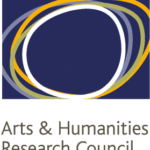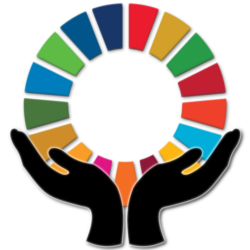Research Network
 Keeping Faith in 2030: Religions and the Sustainable Development Goals
Keeping Faith in 2030: Religions and the Sustainable Development Goals
Funded by the Arts & Humanities Research Council (AHRC), this research network aims to enhance international and cross-sectional exchange about the role of religions in defining, implementing, and safeguarding sustainable development, as codified in the UN Sustainable Development Goals (SDGs). It consists of research partners and non-academic institutions in Ethiopia, India, and the UK, and is co-ordinated by an international steering group, led by Emma Tomalin and Jörg Haustein.
Workshop activities as part of this research network have now been completed and the final report with findings and recommendations was launched at the All Party Parliamentary Group for Faith and Society in the Houses of Parliament, Westminster on 13th February 2019. Publication and networking activities continue.
Available reports and documents
- Final report and policy recommendations
- Ethiopia Workshop Report
- India workshop report
- UK workshop report
Project Overview
Religion is a major cultural, social, political, and economic factor in many ODA recipient countries, and understanding religious dynamics and the role of faith actors is crucial for sustainable development. While development practice and development studies had essentially subscribed to a modernist, secular paradigm of social change for much of the 20th century, this has begun to change. Greater portions of development aid are now channelled via so-called faith-based initiatives or organisations, and religion is increasingly recognised as a human resource rather than just an obstacle to development. Many religious groups have also been involved
perceptibly in development policy, by adopting and heralding the Millennium Development Goals and through consultations in the drafting of the new SDGs. In UK academia, the Religions and Development (RaD) research programme, funded by the Government’s Department for International Development (DfID) and based at Birmingham University from 2005 to 2011, led the way to collating and deepening research on these developments and identifying crucial issues. A number of important publications have followed since RaD, building upon its pioneering and exploratory work, and sustained interest in this subject area indicates the emergence of a new academic field of ‘religions and development’ in the UK academy as well as internationally, as an interdisciplinary effort between the Arts & Humanities and other disciplines, including Economics and the Social and Political Sciences.
While these and subsequent developments are promising, three major issues need addressing in order to internationally broaden religions and development research, so that it can better respond to the challenges and opportunities generated via the UN 2030 Agenda for Sustainable Development. These have not been adequately addressed by prior research and form the primary concern of this network:
- Voices from the Global South. There is a considerable disconnect between the religions and development literature produced in the Global North and what development researchers, policy makers and practitioners do in many ODA recipient countries. While there have been some exceptions, there is a risk that the current interest in religions and development reflects little more than a donor trend among Western policy makers and researchers, while in ODA recipient countries the continued public role of religions is much more problematic and controversial. By creating this international network of researchers and non-academic partners in two ODA recipient countries, we aim to bridge this divide and introduce a critical feedback mechanism into the conversation. This will help to take a larger array of issues and constellations into account. Ethiopia and India are ideal in this regard, as they encompass a wide array of world religions, and in both countries religious diversity and development policy are highly political affairs. Furthermore, with India being a BRICS country and Ethiopia one of the poorest countries of the world, both countries envelope a wide spectrum of development trajectories.
- Integration of faith-based actors. While there is much research on so-called faith-based organisations and increased funding opportunities available to them, there has been far less meaningful collaboration with them, both in research and development policy and practice. For instance, while faith actors were consulted in the making of the SDGs, this happened late in the day and they had relatively little impact on the final result. Moreover, different religions will translate the SDGs into their own practice in different ways. The epistemological differences between secular and religious worldviews on development are not easily overcome, and there is a need to create effective processes to enable better dialogue between faith-based and development actors and their perspectives on desirable societal trajectories, in order to achieve sustainable change. In response to this, the network involves faith-based actors in all of its activities, to develop and foster mechanisms for achieving such a dialogue but also to establish contacts to serve as grounds for future collaboration in common research, pilot projects and capacity building.
- Improved methodologies, interdisciplinary dialogue, and better data. Academic debate on religions and development is not as nuanced as it could be, with fairly general arguments for or against religion in development being made based on relatively narrow empirical data. Much of this is due to different methodologies and widely varying conceptualisations of religion between the various involved disciplines, but also to relatively little comparative data. The academic output of our network therefore focuses on issues of methodology and comparison across disciplinary boundaries and methodological premises to pave the way for more comprehensive, comparative approaches. In addition, our regional focus allows us to bring together various perspectives from development research and practice in Ethiopia and India, collating data, issues and perspectives in our good practice guide and policy dossiers in way useful for comparison.

